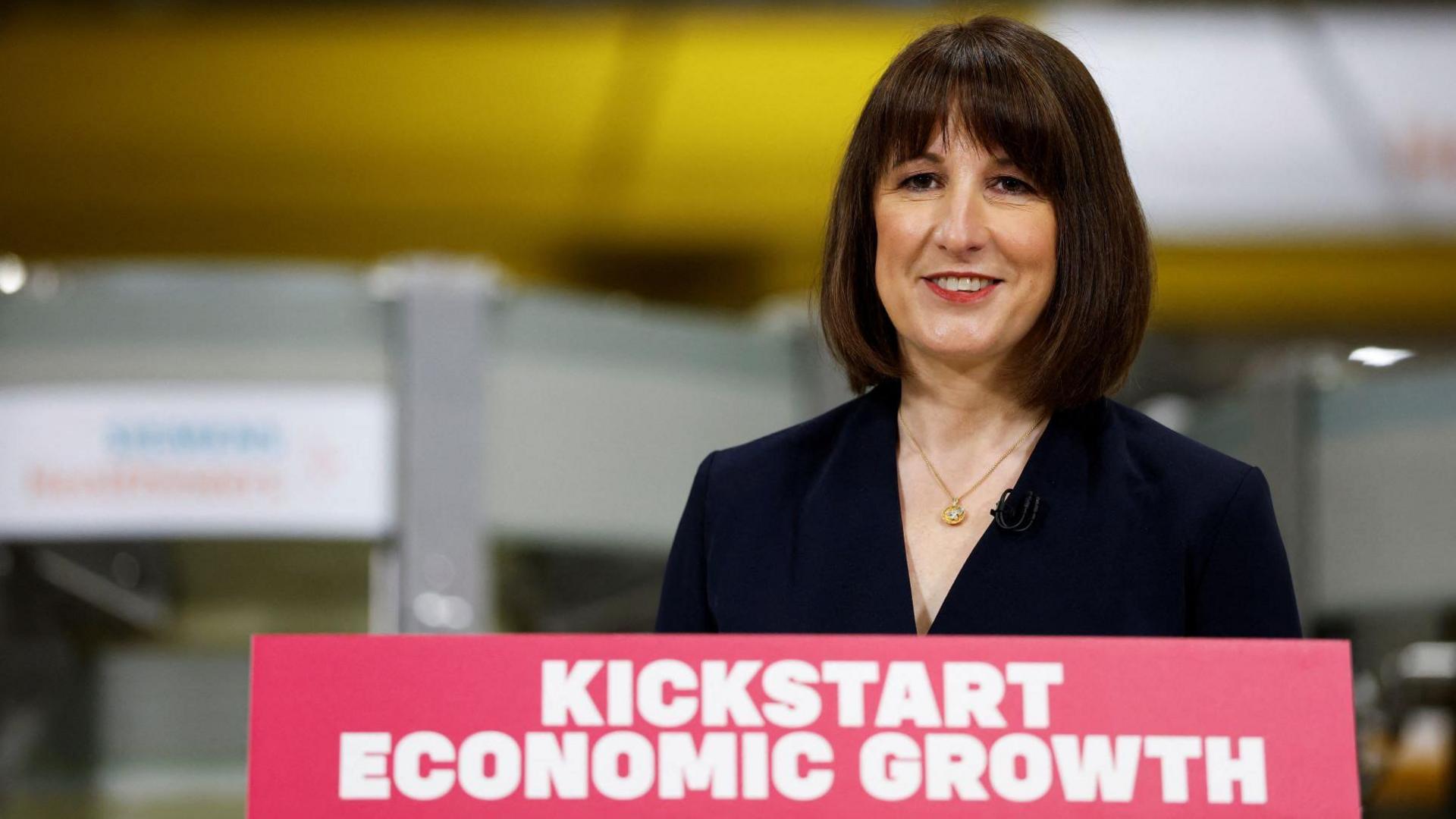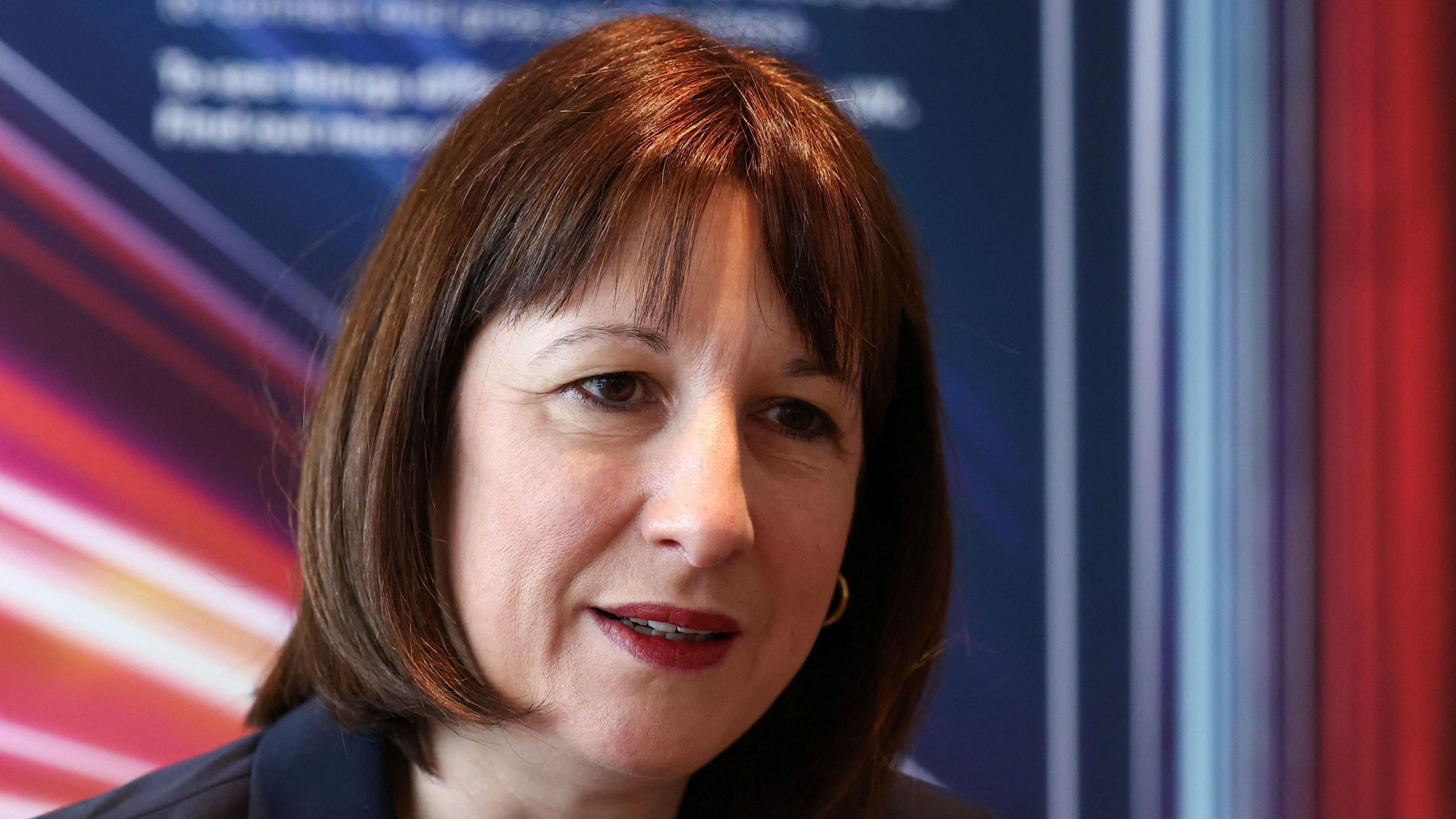AI experts warn electricity costs may stunt growth

Data centre electricity needs are forecast to grow as more artificial intelligence hubs are built
- Published
The government must invest in long-term renewable energy if it wants to drive artificial intelligence (AI) growth in the East of England, experts have warned.
AI is set to be at the forefront of a £2bn data centre in Loughton, Essex, as well as the chancellor's plans for 'Europe's Silicon Valley' between Cambridge and Oxford.
Dr Haider Raza, a senior AI lecturer at the University of Essex, said it was a "very exciting time" for the region but stressed sustainable energy was needed for AI to flourish.
A government spokesman said it was "exploring bold, clean energy solutions" to meet its AI ambitions while aligning with the UK's net zero goals.
Prime Minister Sir Keir Starmer has outlined his vision to "unleash" AI, saying it offered "vast potential" for rejuvenating public services.

The Oxford-Cambridge growth corridor is a key part of Chancellor Rachel Reeves' plan for economic growth via AI
The East of England was placed at the forefront of the government's plan for AI technology.
Nscale pledged £2bn towards the Loughton data centre, due to be built by 2026.
It was also hoped development in the Oxford-Cambridge growth corridor would boost the UK economy by up to £78bn, with AI playing a catalytic role.
The plan has received backing from AstraZeneca, GSK and Astex, which is using AI to develop new cancer drugs at Cambridge Science Park.
However, Dr Raza said "awful" electricity costs could stunt growth and said the government should invest in renewable energy to power AI centres.
"We have to make data centres more efficient. This point is very, very important," he told the BBC.
"Data centres are going to churn through a lot of energy, especially if they are processing too many jobs and mining large amounts of data.
"There are so many aspects we have to manage. Considering the cost of electricity, it's very challenging financially."

Cambridge is one of the least affordable cities in the UK and is also in a water-stressed region
The energy issue could be worsened when using a generative AI system, according to a study by Dr Sasha Luccioni, external.
The research found generative AI might use about 33 times more energy than machines running task-specific software.
Concerns have also been raised by Kenso Trabing, whose AI firm Morphware builds its computer servers in the UK but runs them for a cheaper cost in South America.
He said the country's industrial electricity price of £350 to £400 per megawatt hour (MWh) was unattractive when compared to £35 to £40 per MWh in Paraguay.
The 35-year-old feared despite the UK being a leader in AI, Rachel Reeves' 'Silicon Valley' plan was unrealistic without cheaper electricity.
"High energy costs are a significant barrier to innovation because they make it too expensive to test and experiment with new technologies," he added.
"AI and blockchain projects require enormous computational power, which directly translates to high electricity consumption."

Science minister Lord Patrick Vallance has been chosen to lead on the Oxford-Cambridge growth corridor
Science minister Lord Patrick Vallance visited Cambridge Science Park after he was chosen by Reeves as the person to lead the Oxford-Cambridge growth corridor.
He said the area could become "one of the most important innovation zones in the world".
Cambridge City Council leader Mike Davey said AI must be used responsibly and in line with the authority's green ambitions.
Concerns have been raised about the region being among the driest in the country, a factor that has previously hindered development.
"We've got to make sure water is in place for the AI data centres, and we have to make sure the electricity grid is up to scratch," Davey said.
However, he stressed AI "will be at the heart of what we do in the future".
A Department for Science, Innovation and Technology spokesman said it recognised data centres faced "sustainability challenges such as energy demands and water use".
He added: "Many newer data centres are already addressing these issues, using advanced cooling systems that significantly reduce water consumption."
Get in touch
Do you have a story suggestion for the East of England?
Follow East of England news on X, external, Instagram, external and Facebook: BBC Beds, Herts & Bucks, external, BBC Cambridgeshire, external, BBC Essex, external, BBC Norfolk, external, BBC Northamptonshire, external or BBC Suffolk, external.
- Published31 January

- Published29 January

- Published16 January

- Published13 January

- Published21 May 2024
